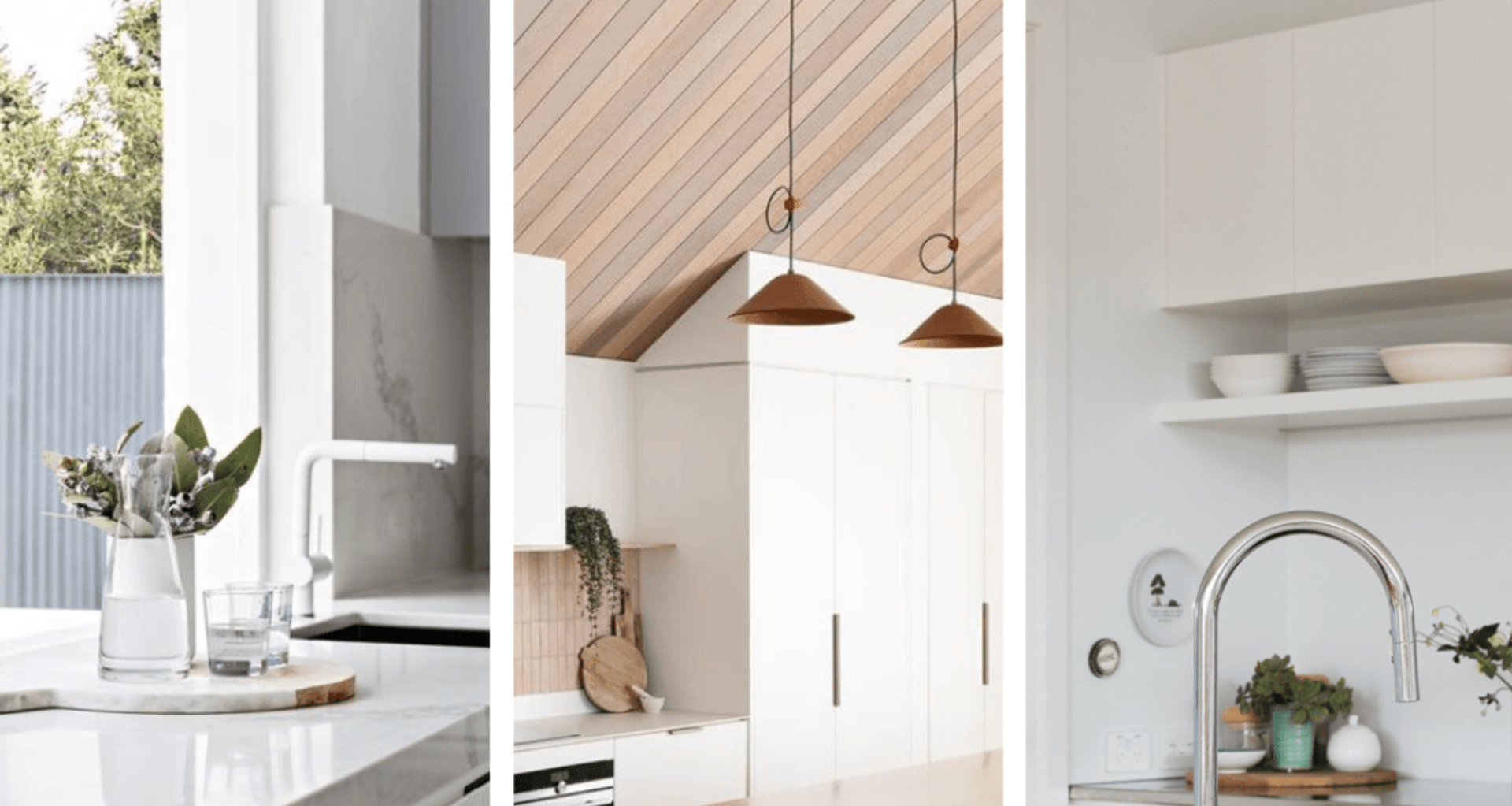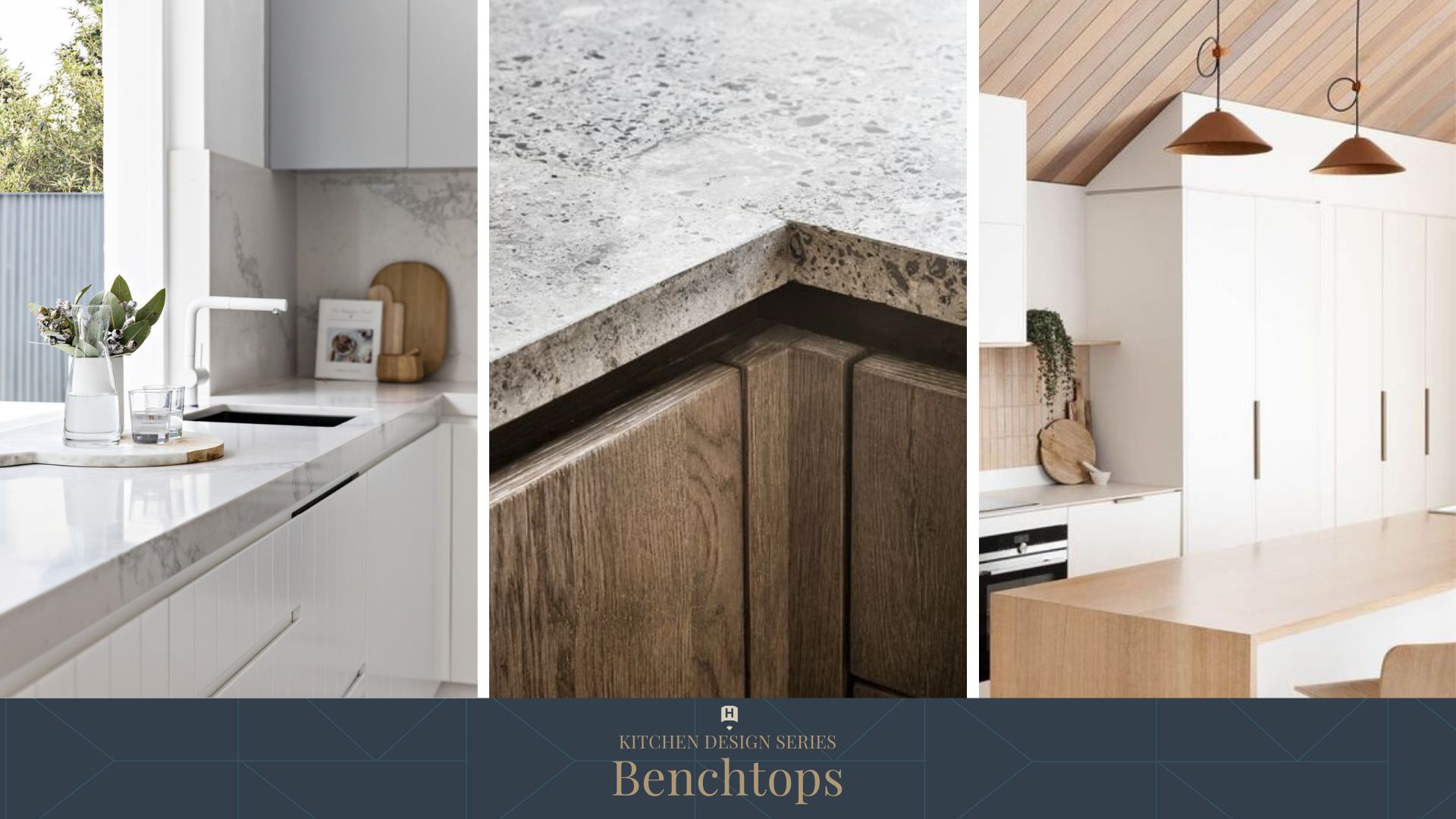Kitchen Design Materials

We can feel spoilt for choice when it comes to materials across a kitchen… or slightly overwhelmed! All kitchen design materials have inherent qualities that contribute to an overall design aesthetic as well as how they are used. Your designer will help you navigate all the options and edit to achieve a cohesive look but here are some considerations to help the process.
BENCHTOPS
How to choose the right surface to be chopped on, dragged across, leaned on AND looked at?
Every time you wipe down your bench or cook up a storm you will be reminded if you made the right decision for your kitchen bench top.
Here are some things to consider:
- Material choices include engineered and natural stone, concrete, timber, laminates, acrylic solid surface and stainless steel. The pros and cons will be weighted depending on what your priorities are so work out what is most important to you.
- When you have decided on the material that suits your budget, how you use the kitchen and your ideal style, decisions around thickness, finishes, up-stands details and if they are flush with cabinet or not all influence the overall effect of this important kitchen design element.
- You might want to include two different surfaces or surface heights to highlight a feature or delineate a ledge.
- Do you want your dishes hidden from sight? This is a key decision to be made early as design integration of a raised ledge in front of your sink can make or break a layout.
- Don’t forget touch as well as look, some surfaces are cold to the touch — great if you are rolling pastry but not if you want to cosy up to it on a bar stool.
- Many products come in sheets so if your benchtop length exceeds that of the material, think about where the join might best be placed.

CUPBOARD AND DRAWER FRONTS
Material choices and details for cabinet fronts can be used to reinforce various components in a carefully planned kitchen layout.
Here are some things to consider:
- The intended aesthetics of your kitchen drives the design of your cabinet fronts but there are other considerations too. The appropriate material for you is also is influenced by types of handle (not all materials work with cut out handles), durability and budget.
- Some kitchen designs benefit from a change in the material for the overhead cupboards or full height cabinetry relative to the base cabinetry.
- Contrasting the interior and exterior cabinet material or colour can be an interesting feature, especially in glass fronted cabinets.
- Glossy finishes show blemishes and fingerprints more that matt.
- Watch push-to-open drawers directly under benches where you are likely to lean… they can pop out and bump your leg like an attention seeking canine.

SPLASHBACKS
How will you maximise the opportunity offered by your splashback? It’s a great place to be brave!
Here are some things to consider:
- Every material of a kitchen is a practical decision but the splashback has a bit more scope for having fun.
- Splashbacks can pull together other elements and adds colour, texture and pattern.
- If the planning has been done well you will be left with remaining spaces between benches and overhead cupboards for pleasing blocks of a new material.
- Tiles are a favourite, from the classic subway, sleek larger forms, organic natural finishes or glazes. Alternatives are colour backed glass, stone, metal, mirror or window glazing.
- Consider heights of benchtops, windowsills and overheads — a bit of forethought can facilitate a good fit for selected tile sizes and clean forms.
- Splashbacks are there for the practical purpose of protecting your walls from water and cooking splashes. The right material choice and finish specifications can save time and frustration when it comes to cleaning.

(For a full-project brief, here’s a link to Top Tips to Brief Your Interior Designer which can be used to guide you with your kitchen design and where to start.)
